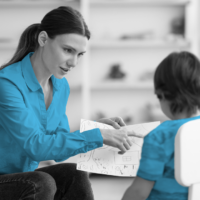This free webinar is open to all, and is organised by ACAMH’s Adverse Childhood Experiences (ACEs) Special Interest Group. The webinar will be led by Professor Heather C. Forkey and Dr. Jessica Griffin from the Department of Pediatrics, University of Massachusetts.
Booking
Sign up to this FREE webinar at this link or on the Book Now button at the top of the screen, and complete the form that follows. You’ll then receive an email confirmation and a link to the webinar, plus we’ll send you a calendar reminder nearer the time.
- ACAMH Members attending will be eligible for a FREE electronic CPD certificate. Members MUST login to book onto the webinar and get their certificate.
- Non-members can opt to receive an electronic CPD certificate for just £5, select this option at the point of booking. This is a great time to join ACAMH, take a look at what we have to offer
Don’t forget as a charity any surplus made is reinvested back as we work to our vision of ‘Sharing best evidence, improving practice’, and our mission to ‘Improve the mental health and wellbeing of young people aged 0-25’.
About the talks
Dr. Jessica L. Griffin – Taking on Trauma: Building the Paediatric Approach to Trauma, Treatment and Resilience
Pediatric encounters offer opportunities to promote resilience, identify trauma symptoms and intervene early. Yet, this necessitates that resilience-promotion and trauma-response literatures be translated into practical brief and effective trauma-informed interventions that fit the workflow and structure of pediatric visits. This presentation will illustrate how the University of Massachusetts Chan Medical School and UCLA paired up with the American Academy of Pediatrics for the Pediatric Approach to Trauma Treatment and Resilience (PATTeR) courses. In two levels of training, we described how the physiology of trauma and resilience explains the clinical presentation of traumatized children; we also adapted standard mental health strategies for relationship-centered care (engagement, psychoeducation, motivational interviewing, and attachment-based attunement by caregivers) to the flow of pediatric clinical care. Multidisciplinary faculty and a grounding of social science concepts of resilience and the attributes of resilient children and common symptoms of childhood trauma drawn from the mental health literature were adapted to the medical mindset. Brief didactics paired with case-based learning enhanced the understanding and ability to respond to trauma in pediatric settings.
Learning outcomes
- To describe a novel approach for training pediatricians in trauma responsive practices.
- To have 4 steps for embedding trauma informed care in pediatric settings.
- To recognize how physiology of trauma can inform patient outcomes.
About the event
The recent American Academy of Paediatrics publications on trauma-informed care and toxic stress are timely as children have faced an increased risk of toxic stress from the myriad adversities heightened by the coronavirus disease 2019 pandemic. Some children will still experience the negative effects of a toxic stress response. In these cases it is argued the paediatric and child health community has a vital opportunity to advance secondary and tertiary prevention by addressing the toxic stress response as a health condition that is amenable to treatment. In addition to promoting primary prevention and nurturing relationships and environments (external factors), paediatric clinicians could also provide early detection and treatment of the neuro–endocrine–immune–metabolic physiologic disruptions that characterize the toxic stress response.
However, practical guidance and clinical tools are limited. Paediatric consultations offer opportunities to promote resilience, identify trauma symptoms and intervene early. Yet, this necessitates that resilience-promotion and trauma-response literatures be translated into practical, brief, and effective trauma-informed interventions that fit the workflow and structure of paediatric visits and enable the child health and paediatric professionals to appropriately triage patients and provide psychoeducation and skill-building guidance that can be scaffolded and delivered in paediatric settings. Stakeholders with trauma expertise helped translate the evidence-base into the language of paediatrics for two Pediatric Approach to Trauma Treatment and Resilience courses.
In the Level 1 Trauma Aware course, they describe how the physiology of trauma and resilience explains the clinical presentation of traumatized children and adapted standard Mental Health strategies for relationship-cantered care (engagement, psychoeducation, motivational interviewing, and attachment-based attunement by caregivers) to the flow of pediatric clinical care. Mnemonics were employed as a learning strategy. The common symptoms of childhood trauma drawn from the Mental Health literature were summarized as
FRAYED: Fear, Regulation difficulties, Attachment difficulties, Yelling and Yawning, Education delays, Dissociation/depression
The Level 2 Trauma Responsive course provides in-depth topics to enhance paediatricians’ understanding of and ability to respond to child trauma (e.g., the intersection of trauma and culture, epigenetics and intergenerational trauma, and secondary traumatic stress. Techniques from the Mental Health literature (e.g., reflective thinking to promote attachment, cognitive coping and emotional regulation strategies to promote recovery) were adapted to fit paediatric visits, including brief anticipatory guidance for children across the trauma spectrum (with risk factors but asymptomatic; mild to moderate symptoms; complex multi-domain symptoms). Level 2 was designed to enable paediatricians to more specifically identify which strategies to apply based on the child’s presentation, including when referral to community resources and evidence-based Mental Health treatment are indicated.
A total of 327 paediatric providers from 47 states, representative of ethnicity and gender participated in Levels 1 and/or 2. Paediatricians participated in a 6-session (1-hour/week) Level 1 course followed by a 12-session (1-hour/week) Level 2 course. The post-course evaluation showed statistically significant pre-post improvement (p<0.05) in knowledge for each concept for Level 1 and Level 2 participants. On free-response questions, participants self-reported: high satisfaction, improved knowledge and skills in trauma recognition and tools for response in the office setting, and the ability to share course information with patients, families, colleagues, and community partners.
Programme
17:00 Dr. Arnon Bentovim – Welcome to the event & introduction
17:05 Heather Forkey and Jessica Griffin – Taking on Trauma: Building the Paediatric Approach to Trauma, Treatment and Resilience
18:05 Q&A
18:30 Dr. Arnon Bentovim – Close
About the speakers

Professor Heather C. Forkey, MD, is a Professor of Pediatrics at the University of Massachusetts Chan Medical School, and Vice-Chair of Pediatrics and Director of the Foster Children Evaluation Service (FaCES) of the UMass Memorial Children’s Medical Center. She also serves as the Pediatric Director for Lifeline For Kids at University of Massachusetts Medical School. She received her undergraduate degree from Cornell University and medical degree from the State University of New York at Buffalo School of Medicine and Biomedical Sciences. She completed her pediatric residency and chief residency at Children’s Hospital of Philadelphia.
In addition to her clinical work, Dr. Forkey has been the recipient of local and federal grants to address issues of children in foster care and to translate promising practices to address physical and mental health needs of children who have been traumatized. She has published and presents nationally and internationally on the topics, and serves in leadership roles for the National Child Traumatic Stress Network and the Massachusetts Chapter and national American Academy of Pediatrics on issues related to foster care, mental health and child trauma. She coauthored the book Childhood Trauma and Resilience: A Practical Guide, available from AAP Press.

Dr. Jessica L. Griffin, is a clinical and forensic psychologist with specialties in childhood trauma, resilience, and relationships. Dr. Griffin is a nationally recognized expert in Trauma-Focused Cognitive Behavioral Therapy (TF-CBT), trauma, resilience, and relationships. She developed the UMass Child Trauma Training Center (now known as Lifeline For Kids) which has trained over 200,000 professionals in trauma, trauma-informed care, and trauma sensitive practices. She is a highly sought-after public speaker and go-to expert for national media and is a regular contributor on news outlets. She is a co-author of a book by the American Academy of Pediatrics, Childhood Trauma and Resilience, A Practical Guide, a go-to resource on childhood trauma for pediatrics. Recently, Dr. Griffin also authored a book for couples in romantic relationships, Relationship Rx: Prescriptions for Lasting Love and Deeper Connection.

